'How I escaped Nigeria wedding kidnapping'published at 13:17 BST 13 June 2022
A Nigerian couple put their wedding celebrations on hold after gunmen abduct at least 29 guests.
Read MoreA Nigerian couple put their wedding celebrations on hold after gunmen abduct at least 29 guests.
Read More BBC Monitoring
BBC Monitoring
The world through its media
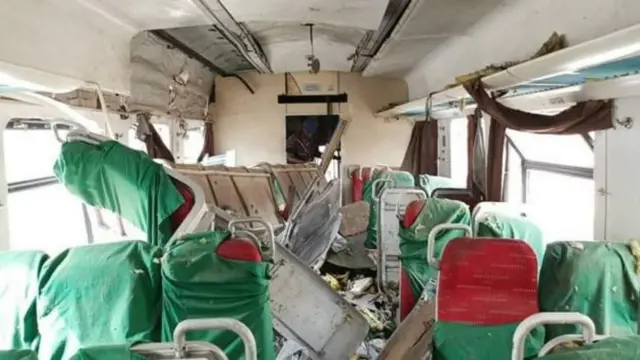 Image source, @CHIBUIKEAMAECHI
Image source, @CHIBUIKEAMAECHIOfficials blamed both Ansaru and Boko Haram
Al-Qaeda-affiliated group Ansaru, which operates in north-western Nigeria, has denied any connection with a 28 March attack on a passenger train that left at least nine people dead and dozens kidnapped or missing.
The group issued the denial in a video statement on Sunday via its accounts on Telegram and RocketChat.
The speaker in the video delivered the message in Arabic and Hausa.
The video showed at least seven masked militants carrying guns.
The unidentified speaker, who stood in the middle, referred to the "false claim circulating among people that Ansarul al-Muslimin fi Bilad al-Sudan [full name of the group] had claimed responsibility for the train attack".
He said "this is an utter lie and fabrication that has no basis of truth," and said that Ansaru had nothing to do with the train attack or the abduction of passengers.
It is unclear what "false" Ansaru claim of responsibility the speaker was referring to.
Nigerian officials blamed Ansaru and Boko Haram, which is active in the north-east, for the attack in the north-western state of Kaduna.
The gunmen who carried out the attack have released videos of hostages pleading with the authorities to help secure their release.
Ansaru said it believed the attack "has nothing to do with jihad" and that such acts "cause fitna [dissonance and conflict] and aversion".
Samba Cyuzuzo
BBC Great Lakes
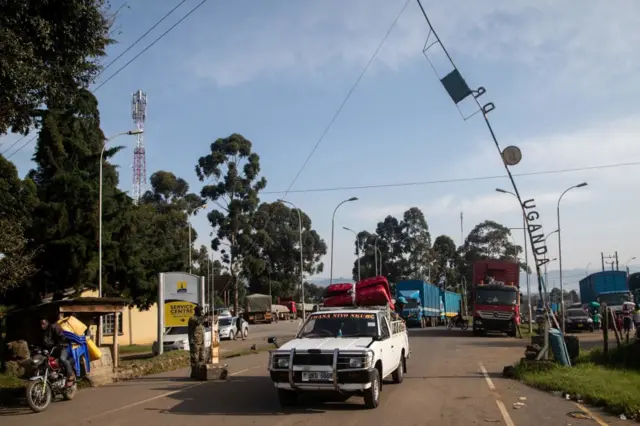 Image source, AFP
Image source, AFPThousands of people have been fleeing to Uganda through the border town
The M23 rebels in eastern DR Congo claim to have captured the border town of Bunagana near Uganda, according to their spokesman..
“We control the whole of the town now," Willy Ngoma, the M23 spokesman told BBC Great Lakes.
The claim follows heavy fighting between the army and rebels that on Monday saw some government soldiers cross over to Uganda, the UN-backed Radio Okapi reports citing sources.
The DR Congo authorities have not yet commented on M23's claim.
Army spokesperson Lt Col Guillaume Ndjike Kaiko said he would comment on this "later", but a statement on Sunday night had said they repelled an attack by the rebels in Bunagana.
The UN says that more than 30,000 people have been displaced by the latest fighting.
Bunagana town is strategic in cross-border trade and is located some 70km (43 miles) north-east of Goma, the capital of North Kivu province.
The town served as M23's base when they captured Goma in November 2012 before they lost the war and fled to Uganda.
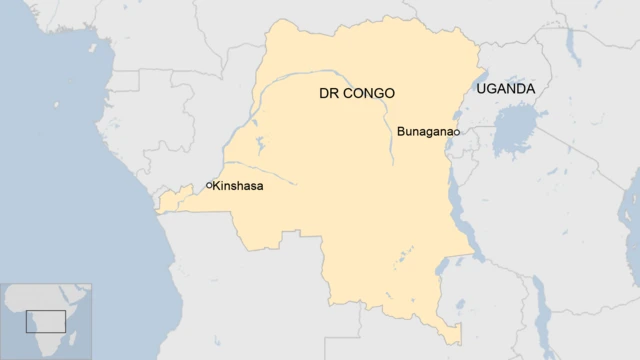
 Patience Atuhaire
Patience Atuhaire
BBC News, Kampala
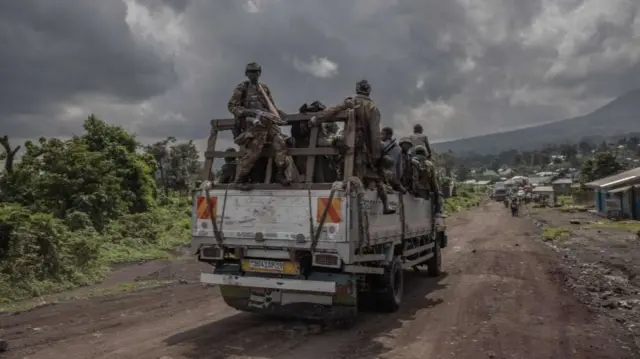 Image source, AFP
Image source, AFPCongolese soldiers, pictured here heading to the frontlines, have been fighting rebels in the east of the country
Dozens of soldiers from the Democratic Republic of Congo have crossed into Uganda after the M23 rebels blocked the main road to Rutshuru.
Ugandan army spokesperson Brig Gen Felix Kulaigye told the BBC that the soldiers were being received at a Ugandan army barracks at the border town of Bunagana.
A source told the BBC that the some of the Congolese soldiers had arrived in military vehicles while others crossed on foot.
Reports indicate that the M23 rebels overran the Congolese side of Bunagana on Monday morning.
Pictures of overturned armoured vehicles, believed to belong to the Congolese army - the FARDC, have also been shared on social media.
UN agencies say that more than 30,000 people in the Rutshuru territory of North Kivu province fled their homes over the weekend.
Hundreds have been internally displaced while others have crossed the border to Uganda.
The Ugandan side of Bunagana border town is crowded with people who have fled their homes due to the fighting over the last couple of days.
Some had wanted to return home on Monday morning, but even more people are now fleeing the fighting.
Fighting between the government forces and the army has intensified over the last couple of weeks, after the Congolese government designated the M23 as a terrorist group and refused their calls for a bilateral ceasefire or peace negotiations.
DR Congo accuses Rwanda of supporting the group made up of mainly ethnic Congolese Tutsi, but the government in Kigali has continually denied these accusations.
South Africa netballer Lenize Potgieter says the introduction of central contracts for the national team will provide security for players.
Read More BBC Monitoring
BBC Monitoring
The world through its media
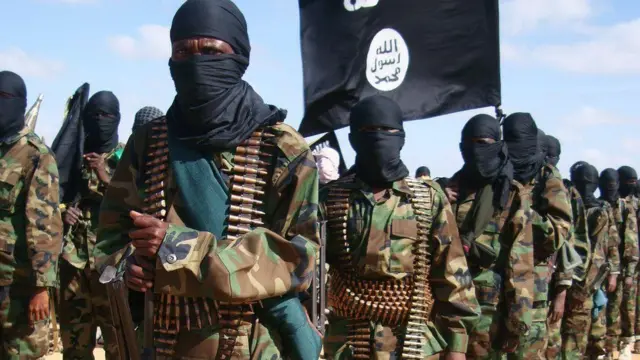 Image source, AFP
Image source, AFPAl-Shabab has been waging a long-running insurgency in Somalia
Heavy taxes imposed by al-Qaeda-allied al-Shabab group in parts of Somalia are making it impossible for farmers to cultivate crops amid a severe drought.
Abdirahman Abdishakur Warsame, President Hassan Sheikh Mohamud’s special envoy for the drought situation, said the al-Shabab taxes were forcing farmers to flee their farms and homes.
Mr Warsame briefed the president and the heads of the country’s regional states on Sunday at the end of a two-day meeting in Mogadishu.
He said more than seven million Somalis have been affected by the drought. Of this, 250,000 are at risk of starvation.
“People are fleeing not only the drought, but also insecurity. In areas controlled by al-Shabab, the terrorist group has prevented people from farming,” Mr Warsame said.
"Al-Shabab has imposed taxes on the plantation process, soil preparation process and harvesting. People cannot farm. As for livestock, anyone selling an animal has to pay a tax larger than the value of the animal.”
Al-Shabab often exploits droughts in Somalia to boost its image and embark on aid distribution.
In January, the group said it launched a "drought relief" campaign.
The militants control some of the country’s most fertile regions where the two main rivers - Jubba and Shabelle - traverse.
 BBC Monitoring
BBC Monitoring
The world through its media
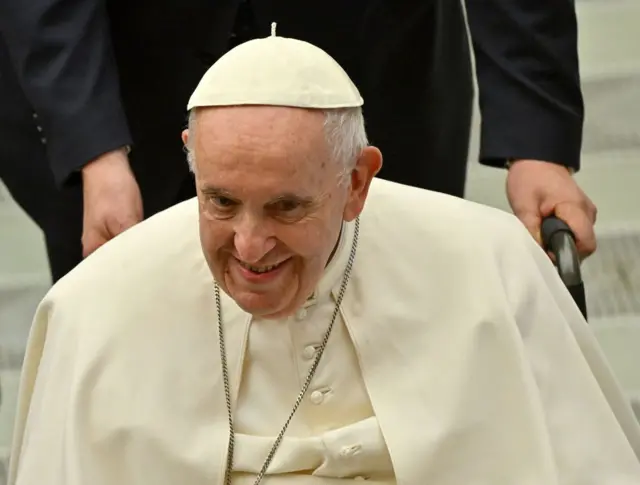 Image source, AFP
Image source, AFPPope Francis has expressed hope that he will reschedule the visits “as soon as possible”
Pope Francis has apologised to the Democratic Republic of Congo and South Sudan for postponing his July visits to the two countries indefinitely for health reasons.
He had planned to visit the DR Congo cities of Kinshasa and Goma on 2 to 5 July before travelling to the South Sudanese capital, Juba, for a two-day trip.
However, the Vatican announced the postponement on Friday due to the 85-year-old pontiff's knee problem.
The pope told thousands of people in St Peter's Square that "with great regret, due to problems with my leg, I have had to postpone my visit to your countries".
He expressed hope that he will reschedule the visits “as soon as possible”.
The pope used a wheelchair for the first time at a public event in May due to reported pain in his right knee and has had to postpone a a scheduled trip to Lebanon this month.
Samba Cyuzuzo
BBC Great Lakes
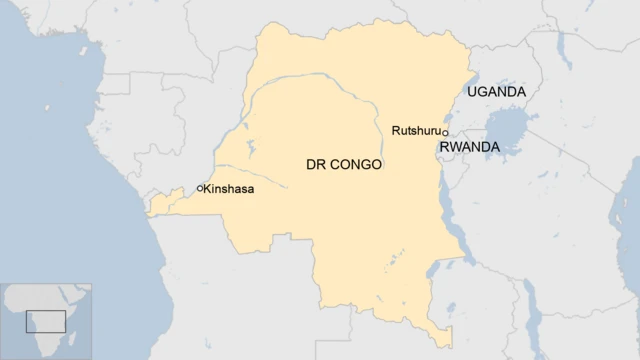
More than 30,000 people have fled their homes in eastern Democratic Republic of Congo following heavy fighting between the army and M23 rebels in Rutshuru, near the border with Uganda.
About 5,000 fled to Uganda, while 25,000 others are camping in schools and churches in Rwanguba, Kabindi and Kinoni areas of Rutshuru, the UN’s humanitarian affairs office says.
The army and the rebels accuse each other of instigating the fighting and each claim to have won the Sunday clashes.
In a statement, the army said it now controls the border town of Bunagana.
But M23 spokesperson, Willy Ngoma, said they killed many government soldiers and others had left behind their weapons while fleeing to areas around Bunagana.
The army accused Rwanda of helping the rebels' attempt to take Bunagana. Rwandan officials have consistently denied allegations of supporting the M23 rebels.
On Saturday, the Rwandan and Congolese armies had accused each other of shelling across the border.
 BBC World Service
BBC World Service
The UK's Court of Appeal is set to decide later whether to allow the first flight to depart to Rwanda on Tuesday with asylum seekers.
Last week campaigners and migrants failed to win an injunction against the government in the high court in London.
It's uncertain how many people will be on board.
The British Home Secretary Priti Patel says the "vast majority" of those who take illegal routes - such as unauthorised boats and stowing away in lorries - will be considered for relocation to Rwanda.
But the move has been criticised by charities and opposition parties.
 Ahmed Ambali
Ahmed Ambali
BBC Yoruba, Lagos
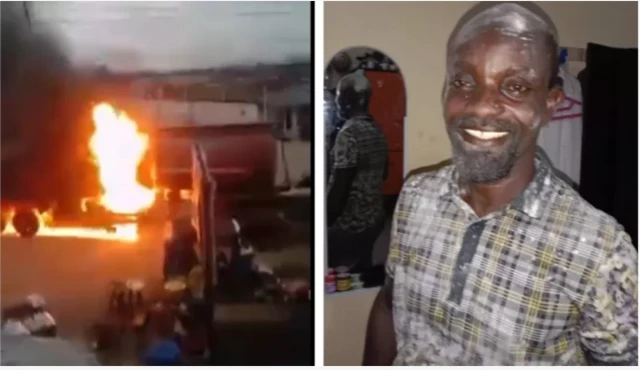 Image source, Ejiro Otarigho
Image source, Ejiro OtarighoA Nigerian man who has been hailed a "hero" for risking his life by driving a burning fuel tanker away from a densely populated suburban area in Warri Delta State has recounted to the BBC the scary ordeal.
"'There was just one thought on my mind and that was to plunge the burning tanker into a river nearby'," Ejiro Otarigho said.
''My [assistant] was the one who alerted me to the fact that our tanker was on fire. It was a scary ball of fire," he continued.
Mr Ejiro said he had just offloaded some of the contents of the tanker and was heading towards another point when tragedy struck.
With no time to waste, he told his assistant to get off and he sped off in the burning tanker amidst shrieks of fear and dismay from onlookers.
In the dangerous incident, any slight error of judgement from Mr Otarigho or, a sudden explosion, could have resulted in total disaster.
"My intention was to drive to the river. When I got there the car steering got stuck and I couldn't move any further," he recounted.
"I said if I drive straight, the truck may fall and that may cause another problem. So I just have to park in the open space."
Mr Otarigho finally got the tanker to safety and onlookers can be seen in one of the videos dragging him away.
Mr Otarigho is safe and sound save for some smoke inhalation and a few bruises.
Tanker fire accidents are common in Nigeria and many lives have been lost with accompanying damage to properties.
Mike Thomson
BBC News
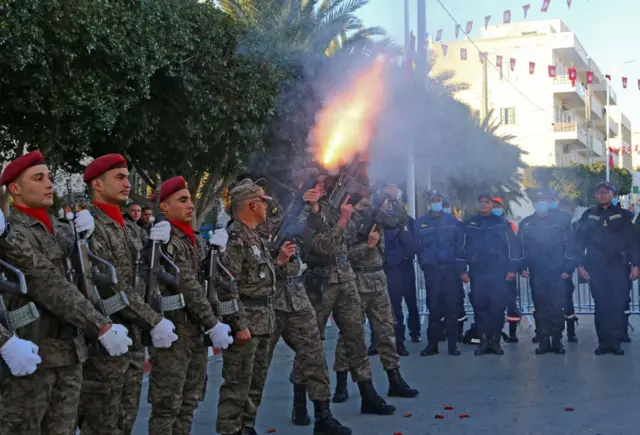 Image source, AFP
Image source, AFPThe journalist claimed the army had refused the president’s orders to close down a labour union headquarters
A Tunisian military court has ordered the detention of a journalist after he claimed the army had refused the president’s orders to close down the headquarters of the powerful UGTT labour union.
Salah Attia likened the current situation in Tunisia to the final days of the former authoritarian leader, Zine El Abidine Ben Ali, who was ousted in an uprising just over a decade ago.
Mr Attia is accused of “harming the army” and “inciting Tunisia to violence".
Critics of President Kais Saied say he's seeking to consolidate one-man rule since seizing power last July.
 Shingai Nyoka
Shingai Nyoka
BBC News, Harare
A Zimbabwean opposition party says the remains of a missing supporter have been found in a well, ending a widely publicised search.
Moreblessing Ali was reported missing following an argument with a former boyfriend, Pius Jambo.
Mr Jambo, who's been described by the opposition Citizens' Coalition for Change as a ruling party supporter, is alleged to have dragged her from a bar in May.
The ruling party, Zanu-PF, has denied involvement in the killing and asked that police be allowed to do their investigations.
Ms Ali's mutilated body was found dumped in a well south of the capital, Harare.
Police have previously said they were treating the case as domestic rather than politically motivated.
But an opposition spokesperson Fadzayi Mahere said Mr Jambo was linked to previous violent attacks against opposition supporters. She called for a swift, impartial investigation.
Allow X content?
This article contains content provided by X. We ask for your permission before anything is loaded, as they may be using cookies and other technologies. You may want to read X’s cookie policy, external and privacy policy, external before accepting. To view this content choose ‘accept and continue’.
 BBC World Service
BBC World Service
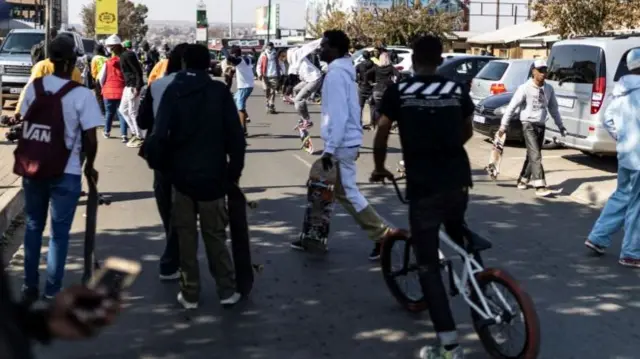 Image source, AFP
Image source, AFPA new survey suggests that two thirds of young African people are not optimistic about the direction of their country or continent - but remain positive about their personal futures.
Researchers conducted more than 4,000 face-to-face interviews across 15 countries for the African Youth Survey.
More than half said they wanted to emigrate in the next few years, while nearly 80% planned to start their own business.
They said governments should prioritise creating well-paid jobs, reducing corruption and fighting climate change to help Africa progress.
About three quarters of the participants said they saw China as the strongest foreign power on the continent eclipsing the US which had previously held the role.
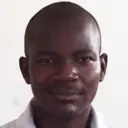 Ishaq Khalid
Ishaq Khalid
BBC News, Abuja
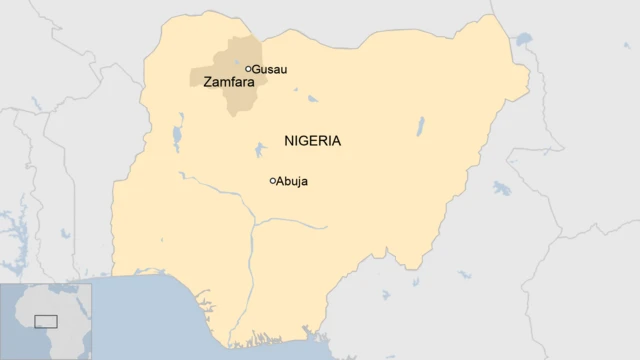
Gunmen have abducted at least 29 people in the north-western Nigerian state of Zamfara, police say.
The victims were travelling back home from a wedding ceremony when the armed men ambushed a convoy of their vehicles.
The victims were mostly mobile phone dealers from a popular market in Gusau, the Zamfara state capital – who had attended the wedding of one of their colleagues in neighbouring Sokoto state.
One man who survived the attack told the BBC the gunmen had mounted three roadblocks on Saturday evening, trapping vehicles and opening fire on them.
A number of travellers managed to escape on foot with gunshot wounds, abandoning their vehicles.
A police spokesperson said security forces had launched a search for dozens of hostages.
The Nigerian authorities are facing increasing criticism for failing to tackle the widespread insecurity including frequent killings and kidnappings for ransom by armed gangs.
In a speech to mark the 23rd anniversary of Nigeria’s return to democracy on Sunday, President Muhammadu Buhari acknowledged the rise in violence by various armed groups across the country.
He said his government was doing its best to address the problem.
More than 3,500 people have been killed in the first three months of this year alone and thousands more have been kidnapped.
Read more:
Our proverb of the day:
Quote MessageBorrowed water cannot quench one’s thirst."
A Balanda proverb sent by Ngilisona Ufo Bazia in South Sudan
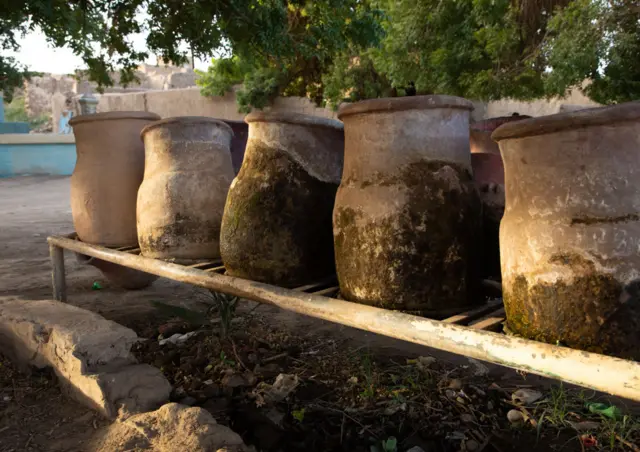 Image source, Getty Images
Image source, Getty ImagesAn Iranian policeman set to be deported under the UK's new scheme says his life will be in danger.
Read MoreA fourth season of failed rains is causing one of the worst droughts East Africa has seen in decades, with up to 20 million people at risk of severe hunger. Ben Rich explains why the situation could continue to worsen.
Read MoreThis week we’re in Rwanda, where some men are getting lessons teaching them how to look after their babies. As well as promoting gender equality it's helping to reduce the high levels of violence women there experience at the hands of their husbands and partners. People Fixing the World meets the people taking part and finds out how it works and what difference it’s making.
Reporter Lily Freeston Executive Producer Nick Holland
(Photo Credit: BBC)
Women in Uganda are learning how to treat their neighbours for depression. That’s because there aren’t enough resources for professional care, especially for people from poor backgrounds.
An organisation called StrongMinds sets up group therapy sessions across the country, and when clients come out of depression, some are trained to run courses for other women.
People Fixing the World visits a session in Kampala to see how it works and meet women whose lives have changed dramatically.
Producer: Reha Kansara
(Photo: Women in Uganda smiling. Credit: Kwagala DeLovie)
Fires are common in South Africa’s informal settlements - it’s estimated that there are about 5,000 every year. They’re often caused by faulty wiring or open flames used for cooking or heating. Because the shacks are crammed in so tightly the flames can spread with frightening speed and destroy hundreds of homes. So a group of entrepreneurs invented a smart fire alarm for just these sorts of places. It has a sensor that spots fast increases in heat and then sends alerts to all the neighbours so they can quickly take action. They also designed insurance to help people who are affected by these fires rebuild and replace what they’ve lost. We go to one of these settlements in Cape Town and find out what difference it has made to the lives of the people living there. Reporter: Richard Kenny